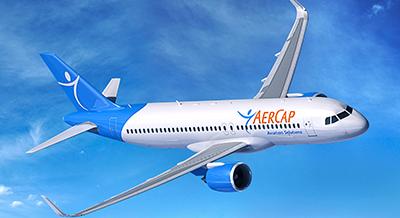AerCap Agrees To Buy GECAS In $30B Deal To Form Super Lessor

AerCap is taking over General Electric Capital Aviation Services (GECAS), its primary competitor in the aircraft leasing market.
AerCap and General Electric (GE) confirmed the transaction March 10. The transformative deal, worth more than $30 billion all together, creates a leasing giant four times as large as its nearest competitor with a fleet of more than 2,000 aircraft, 900 engines and 300 helicopters.
“It is the right business at the right time for the right price,” AerCap CEO Aengus Kelly said during an investor call. The deal was “not about scale, it has to make sense financially.” Kelly described it as a “unique generational chance” for AerCap and predicted “significant revenue, cash-flow and earnings growth.”
Kelly pointed out that AerCap is acquiring the fourth leasing business below book value following debis AirFinance in 2005, Genesis Lease in 2009 and International Lease Financing Corporation (ILFC) in 2013. For the integration, AerCap plans to follow the “playbook” it has used for ILFC.
“GECAS is a highly attractive business and this transaction continues our strong track record of capital allocation,” Kelly said. “As the recovery in air travel gathers pace, this transaction represents a unique opportunity that we believe will create long-term value for our investors.”
As part of the transaction, AerCap will buy GECAS paying $24 billion in cash and $1 billion in the form of AerCap notes and cash. Additionally, AerCap will issue 115 million new shares to GE making it the largest shareholder with a 46% stake in the combined leasing company. GE will also nominate two directors to the AerCap board. Citibank and Goldman Sachs are providing $24 billion in financing.
“We think that there has been a rare alignment of conditions that should (regulator willing) allow for this deal to be pulled off,” Vertical Research Partners analyst Robert Stallard wrote to clients. “AerCap has access to reasonably priced capital, particularly debt, GE is a reasonably willing seller, and the aircraft leasing industry and its customers has been through a fair amount of pain over the last year—but the outlook is improving. AerCap was already the largest leasing company, but with this deal it increases its exposure at a point when aviation is just getting out of the coronavirus recession, with GECAS likely bringing some advantageous narrowbody delivery slots in 2022-24.”
AerCap expects to get shareholder approval for the deal at its May annual general meeting. According to AerCap CFO Peter Juhas, the transaction needs antitrust approvals from around 20 countries, but AerCap is “very confident” that it will get them. Closing is expected for some time in the 2021 fourth quarter. GE leaders echoed the confidence.
For his company, GE chairman and CEO Larry Culp stressed the upside from debt reduction—with the “big step” of the $24 billion infusion for GECAS, GE will have to cut $70 billion in debt since 2018—as well as the fact that GE still will claim almost half ownership of the new super-lessor whose earnings power is expected to grow.
“Combining these complementary franchises will deliver strategic and financial value for both companies and their stakeholders,” Culp said. “Together we’re creating an industry-leading aviation lessor with expertise, scale and reach to better serve customers around the world, while GE gains both cash and upside in the stronger combined company as the aviation industry recovers.”
Analysts asked Culp how the selloff affects GE Aviation, GECAS’s raison d’etre, but the CEO said GE Aviation, GE’s leading industrial component, will not be affected. “We’ve really studied that question,” Culp told GE’s investor conference. “We would never do anything to harm the incredibly important and valuable GE Aviation franchise. GE Aviation with a relationship with AerCap will be just fine.”
Meanwhile, the takeover also raises the question what the consequences will be for competitors of the enlarged AerCap. Avolon, a subsidiary of HNA Group’s Bohai Capital in which Orix Capital is a minority owner, will be the second largest player in the business with a fleet of around 550 aircraft. However, given HNA Group’s financial difficulties, there are questions around whether the company could be sold before the AerCap/GECAS deal became known.
Now, there may be more pressure on Avolon and other players. Given that organic growth will not close the gap with the larger competitor, some lessors and their backers could now consider further mergers. Avolon CEO Domhnal Slattery told Aviation Week in February that he expects major consolidation moves in the industry in the next year or two.
“The initial thought is likely to be that this is bad for the OEMs, as one of its biggest customers has now got even bigger, and thus has more purchasing power,” Stallard wrote. “However, we think the implications are more nuanced. Airbus and Boeing would much prefer to have a customer base that is well financed and stable, versus a plethora of small airlines and leasing customers that cannot survive through a downturn like 2020.”
Stallard also sees AerCap as “the aerospace version of a ‘sophisticated investor’–we don’t see it placing the speculative aircraft orders that some airline startups are prone to do for example. As one of the largest OEM customers, we already think that AerCap was getting a very good price for its new planes—maybe it can squeeze out some more, but the lower risk that comes with an AerCap + GECAS order could mean that it still makes financial sense for Airbus and Boeing. We’d also see this as another sign that the outlook for aviation is likely to improve as we move through 2021, and hopefully into the next up-cycle.”
Asked how the deal came about, Culp said Kelly was “one of the first people” Culp talked with after becoming CEO in late 2018, and that talks picked up recently.






